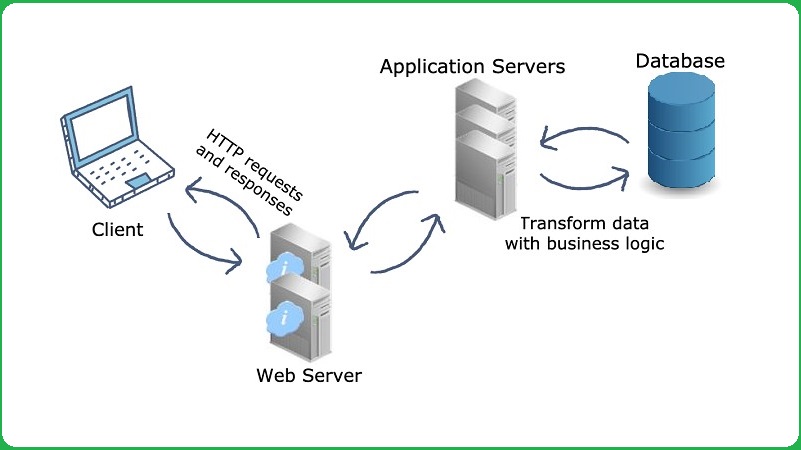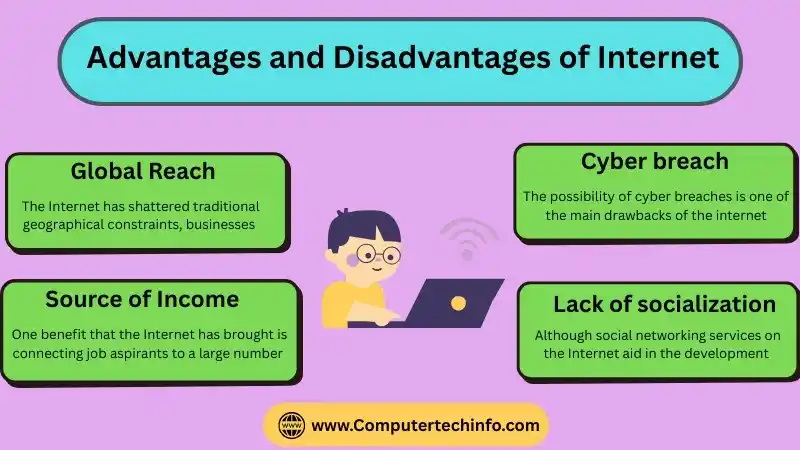What is Application Server?
Definition: An application server is a special types of server that allows both web apps development and server environment for running them.
server is software that placed on server side, and this software helps to deliver business logic back end of any application. You can says that it is a part of network otherwise distributed network.
Application server contains of server operating system and hardware components of server. And they perform all tasks together to offer computing intensive operations and services to application which are inside it. It helps to execute and produces users and application access while utilizing business and function logic of application that installed on the application server.

Application Server Diagram
Primary features of application server enable load balancing, data/application protection, centralized management interface, data redundancy, and high availability. Application server can connect with remotely network and enterprise systems for accessing via internet.
Why to Use of Application Server?
Application server helps to deliver best processing power and memory unit for running their applications in the real-time. As well as, it also offers the suitable environment to run particular applications.
Main purpose of using of application server is given below:
- To decrease the size and its complexity of all client programs
- To get best performance, it requires cache and handles the entire data flow.
- It implements protection for data and end-user traffic.
Types of Application Server
Application server is divided into three categories, such as:
Active Application Server: This server helps to offer support and better environment to use business logic. This enables in the server side which expressed like as rules, objects, and components, and it is also known as “Stateful Server”.
Web Information Server: This type of server help to creating pages from database with enabling HTML templates. So it has name the “Stateless Servers”.
Component Server: This server plays major role in offering database access for using of software components like as COBRA, DLL, and Java Bean. It is more supportive for transaction processing requests.
List of Other Types of Application Server:
Due to success of Java Platform, Application server referrs as “Java EE 5 or J2EE Application Server“. So it is also known as “Java Enterprise Application Server“.
There are different types of application servers, like as:
- JBoss
- Weblogic
- Websphere Application Server and Community Edition
- WebObjects
- Glassfish
- Tcat Server
- Apache Geronimo
- JRun
- Oracle OC4J
- Sun GlassFish Enterprise Server
- SAP Netweaver AS
- Sybase Enterprise Application Server
- tc Server
- Apache Tomcat
Examples of Application Servers
Here, we spread light on few examples of Application Server; below explain each one:
Business Logic: Application server offers best environment to execute code like as PHP or Java to use business logic like as transaction, business rules, authorization, and more.
API: API helps to make communication in between application server and clients without getting any deep knowledge of both.
Mobile Application Server: Application server also delivers best service for different types of mobile apps. This includes as Ecommerce app can access list of all product detail with using of application server.
Integration: Application server acts as middle layer in between database and highly backend system. For instance; application server is using for banking website that helps to establish connection with its database and services for their account data, transactions, and market data.
High Availability: In few scenario, application servers offers load balancing, failover, and clustering. So Several servers can deploy to manage heavy load and get high availability.
Media: Application server also helps to serve static websites and other media like as picture and streaming video.
Web Server: Apps server also provide several functionalities to make and serve dynamic websites.
Web Server Integration: Application server is mostly implementing behind to firewall where all clients are capable to send request for getting services through web server. It acts as web server for getting to cache responses and deliver static content, and releasing the massive business logic to application server.
Asynchronous JavaScript: In some areas, any web page enables with active content where this page can call itself an application server with the using of JavaScript.
Desktop Application: Several types of desktop software’s are available in the market, which are getting to make connectivity with an application server. For instance, user can install MP3 player on his desktop, and it connects with internet for receiving metadata about song.
Cloud Deployment: Today, it is getting more popularity to implement application server to cloud system, and cloud load balancer can use as opposed to higher availability features of Apps server product themselves.
Microservices: It is advance technique that enables splitting business logic into independently deployed services. Microservices are mostly implementing to application servers on the cloud system, and it helps to offer more scalable and resilient applications.
Systems: Application servers developed to deliver services for different types of applications, and they also used to build a system. For instance, IoT device without using of any user interface.
Application Server Architecture with Working
It is implemented in the web based application that contains the 3 tier architecture.
- Tier 1: It acts as GUI interface that placed at the client side, like as browser.
- Tier 2: It works as middle tier that contains of Application server.
- Tier 3: This is the backend server, such as Database Server.
As you can see in the application architecture, they make communication along with web server for sending all requests which are receiving from clients’ side.
In the firstly, clients send a requests, which are forwarding to web server, and then web server moves it to second tier “Middle Tier”, application server receives all information from third tier and push it back to web server side. Finally, web server moves toward back needed information to client system.
Advantages of Application Server
There are few benefits of application server, such as:
- It delivers better environment for making to deal along with all internal and external components as well as running services such as asynchronous client notifications, synchronous, and session management.
- Easy task to install applications in one area
- Modification of any configuration like as altering of Database server can do in centralize from one area
- It is easy task to deploy of patches and security updates by them.
- Offering best protection to all applications
- Due to fault tolerance, it is able to failover/recover recovery.
- Supportive to transaction support
- It takes less time for installing a copy of configuration on every system independently.
- Due to best Load Balancing, it is great capability to spread all requests on other different types of server depend on their availability.
- Application server helps to grow up the performance of all applications as it’s depend on client server network.



